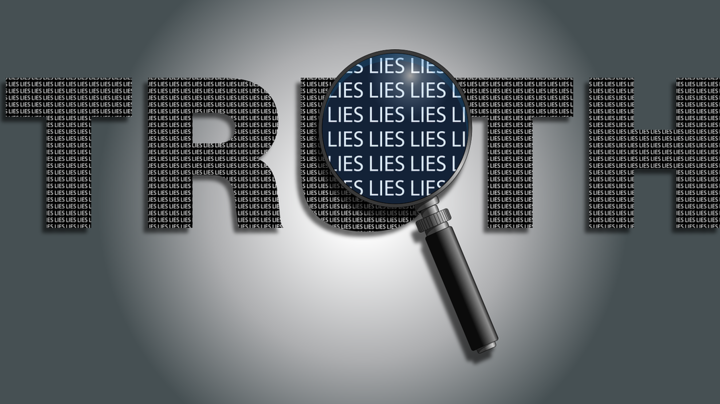The Florida Conference of The United Methodist Church recently hosted four webinars on Detecting Disinformation. The recordings of those webinars are available to view online for free.
In our era of 24-hour news and social media, it is more important than ever to understand how to know if the information you are receiving is factually true. This engaging, enlightening, and eye-opening series will show you how easy it is for someone to create and spread information that is not true and how easy it can be for you to detect the validity of the information you see online.
Using current, real-world examples, Al Tompkins will walk you step-by-step through how to verify the truth of information online. He will introduce you to many free tools and techniques that make this work take only a few minutes of your time.
The Presenter
Al Tompkins, the presenter for this webinar series, is an Emmy-award winning journalist. He also happens to be married to a clergywoman in the Florida Conference. Here is Al’s bio from the Poynter Institute where he serves as Senior Faculty.
Al Tompkins is one of America’s most requested broadcast journalism and multimedia teachers and coaches. After nearly 30 years working as a reporter, photojournalist, producer, investigative reporter, head of special investigations and News Director, Tompkins joined the Poynter Institute where he is Senior Faculty for Broadcast and Online. He is the author of “Aim for the Heart” a textbook about multimedia storytelling that has been adopted by more than 100 universities worldwide. He has taught in 49 states, Canada, Egypt, Denmark, South Africa, Iceland and the Caymans.
https://www.poynter.org/author/atompkins/
The Series
This Detecting Disinformation webinar series was specifically designed for pastors and church leaders. Al often makes connections between the topic and scripture. He also points out why this information is particularly important for pastors, whether it be using truthful sources for your sermon illustrations or monitoring your own name for lies that may be told about you online.
These are some of the topics covered in the webinar series:
- How to know if an image has been altered
- How search engines and social media decide what you see
- The motivations behind disinformation
- Find the origin of the latest rumor that one of your members emailed to you
- How a claim can be “accurate” but not “true”
- How to verify polls and studies
- How to fact-check using a three-step process
Al also provided a PDF of several of the tools that he demonstrates during the series, but many more are mentioned throughout the presentations.
For Youth, Older Adults & Everyone
The Poynter Institute provides disinformation detection programs for the public that are specifically designed for youth and seniors.
Share the MediaWise page with the youth in your church and they will find a Teen Fact-Checking Network along with social media influencers to follow that will help them learn to recognize truth and combat disinformation.
MediaWise for Seniors offers a self-directed fact-checking course and a live fact-checking seminar for older adults to learn how to tell fact from fiction.
Share the Navigating Digital Information YouTube playlist with anyone in your congregation to help build skills in wise discernment for the digital age.
Our Responsibility
As Christians and as leaders, it is our responsibility to know that the information we are sharing online or in a sermon is factually true. It is also our responsibility as loving neighbors to teach others to use wise discernment in search of the truth.
View these resources, learn these skills, and then teach them to your congregation. We all need to do our part to fight disinformation and bring the truth to light.
Featured Image by OpenClipart-Vectors from Pixabay

